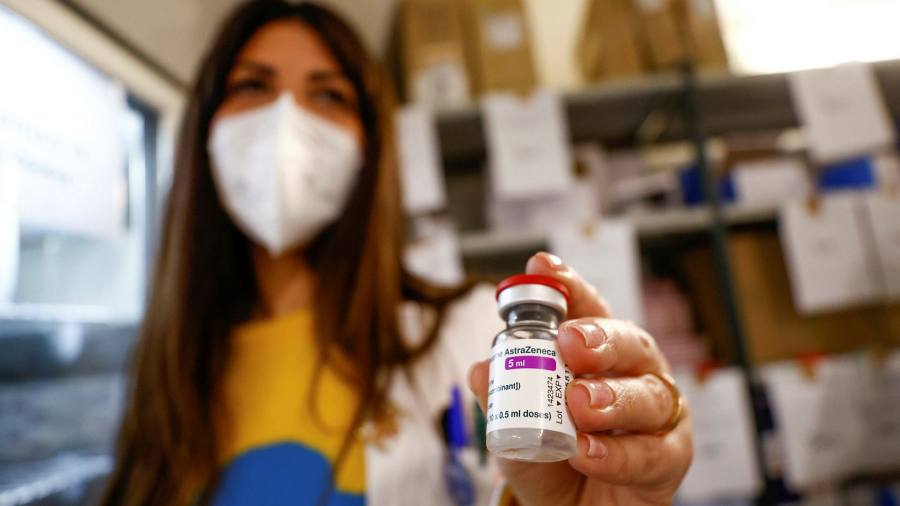[ad_1]
Governments vying to vaccinate their populations against Covid-19 as fast as possible and shortages of the life-saving vaccines make for a volatile mixture. Tensions are bubbling to the surface. Italy on Friday became the first EU country to block an export shipment of vaccinations — 250,000 doses of the Oxford/AstraZeneca jab destined for Australia — under a provision introduced by Brussels in response to delays in Europe’s vaccine programme. Having approved the Italian block, Brussels signalled it would press the US to allow millions of AstraZeneca vaccine doses to be exported to Europe, despite an executive order signed by then president Donald Trump in December to use US-made jabs to meet domestic demand first.
There is an irony in the EU scrambling to obtain supplies of a vaccine whose efficacy some member-state politicians initially questioned — fuelling scepticism towards the jab in some countries that the same politicians must now counter. But the EU is under huge pressure over its slow vaccine rollout as infections again rise in parts of the bloc, while the US and UK race ahead with vaccinations. The joint EU-wide approach has splintered. Hungary has issued emergency approvals for Russian and Chinese vaccines; Austria and Denmark are discussing supplies with Israel.
The root of the problem remains the commission’s flawed handling of the procurement process. Brussels was late to sign contracts with drugs makers, and failed to invest early enough in production and manufacturing capacity. The commission has been at loggerheads with AstraZeneca since it informed officials in January that its first-quarter deliveries would fall short due to production problems at a contractor site in Belgium. The UK, which has had no such problems with AstraZeneca, appears to have signed a much more tightly drafted contract.
Yet it is unclear why the Anglo-Swedish company, given its pledges to make up the shortfall in EU deliveries, is exporting vaccines from European facilities to Australia. Even while Canberra called Italy’s export block “tearing up the rule bookâ€, Australia’s prime minister Scott Morrison also conceded there is a moral case for vaccines to go to countries still seeing high levels of infections and deaths; Italy is experiencing about 300 fatalities a day. Australia has only a handful of current infections, after effective efforts to contain the pandemic.
When the EU’s export control regime was introduced in January, moreover, the hope was it would be used to create further transparency over supplies and contract commitments, rather than as a protectionist measure. However understandable the motives of Italy and the EU, it is regrettable that it has been used in this way. EU officials have responded by highlighting export controls elsewhere. The UK on Friday denied Brussels’ claims that it had restrictions in place, but Trump’s executive order said the US should export jabs only once it was certain it had sufficient supplies for its own population.
There is some hope of avoiding escalating tit-for-tat measures. EU capitals and Brussels have stepped up efforts to ease vaccine supply constraints by the second quarter. The arrival of Joe Biden as US president may ease transatlantic co-operation. But US and EU governments must balance the political imperative to prioritise their own citizens with collaboration to ensure vaccines reach those who need them most. If rich countries descend into squabbling and protectionism among themselves, the bigger challenge — of supplying jabs across the developing world — will be even harder to achieve.
[ad_2]
Source link






